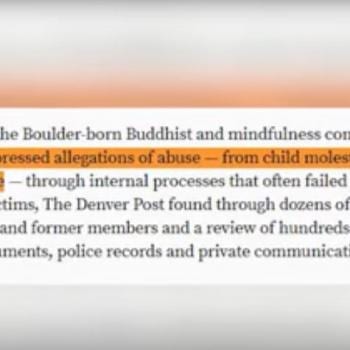This year we mark Pride Month with a re-run of an article first published in 2015. Enjoy. Along the way, a wonderful collection of works by trans, genderqueer, and nonbinary practitioners of Buddhism has been published: Transcending: Trans Buddhist Voices (North Atlantic Books 2019). Today I am delighted to introduce readers to La Sarmiento, a long time Vipassana meditator and teacher who will be co-leading a retreat at the Garrison Institute called “Embodying Presence in Our Lives: A Mindfulness Meditation Weekend... Read more
















